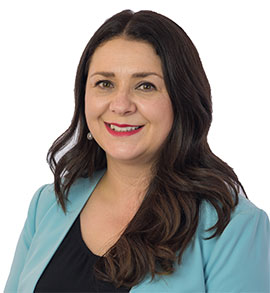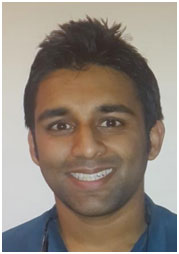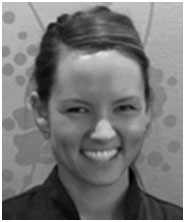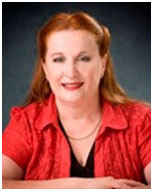About Us
AutiSense is a private early stage start-up providing innovative digital educational and therapeutic app-enabled platforms to improve health literacy and preventative health care engagement that facilitates communication and partnerships that leads to better health decisions, actions and outcomes.
AutiSense was established in August 2016 by Joanna Granich who identified a gap in the market for comprehensive digital medico-dental health literacy, resources and tools that addressed the needs of all consumers, parents and children as well as practitioners into a one fit-for-purpose platform.
Our Mission
To provide a client-centric digital healthcare experience that matters and is underpinned by four purpose driven pillars:
Anticipate
Inform
Empower
Support
Consumers (patients) including health professionals (providers) by fostering positive partnerships from first contact.

Joanna Granich is a researcher, aspiring digital health-entrepreneur, founder and director of AutiSense Pty Ltd. Her background is in public health, clinical research in child health and disabilities. She is also a registered, sessional dental therapist in a private practice in Perth, Western Australia.
She is passionate about making a meaningful difference to people’s lives by enhancing their health literacy and promoting better access to healthcare. Her vision is to make the early years’ medical and dental experiences for all childrena positive and healthy one so thatit facilitates preventative healthcare and engagement across the person’s life span. Joanna has over 10 years’ experience in academic research. She holds a Masters of Public Health and is an adjunct research fellow at the University of Western Australia as well as a clinical trials coordinator at the Telethon Kids Institute. She has numerous peer-reviewed scientific publications andextensive experience in project management. Joanna is a parent to two boys, of which one is diagnosed with autism spectrum disorder. Joannavalues personal growth and professional learning. Recently she has completed several entrepreneurial and innovation programs at the University of Western Australia; Curtin University, the Centre for Entrepreneurial Research and Innovation and the SparkCoLab – BioDesign program. Her current interests are in digital healthcare, medical technology and online professional development platforms.
Dr Jilen Patel is a specialist paediatric dentist who completed his specialist training at the University of Western Australia and Princess Margaret Hospital for Children. He is passionate about translational research and improving oral health outcomes among disadvantaged populations. He is the principle investigator of an Australian first randomised controlled clinical trial aiming to improve oral health outcomes for refugee children. His PhD studies focus on innovative models of dental care for vulnerable cohorts. Jilen has published research in the areas of dental public health, paediatric dentistry, Indigenous oral health and remote dentistry and is the recipient of several awards and competitive research grants. Jilen is the principal investigator on an Australian first randomised controlled clinical trial investigating caries arrest in refugee children. He is also the Senior Dental Officer and director of the Kimberley Dental Team Ltd and has been awarded fellowships to the Academy of Dentistry International and International College of Dentists.
I'm an oral health therapistat Dental Care Carine. I love what I do and I enjoy working with children, looking after their growing healthy smiles. I am passionate about making young children’s visits to the dentist fun and rewarding dental experience that gets most kids looking forward to their next visit and the next after that. Building rapport and trust with young children in the dental clinic is important for developing a positive and lasting practitioner-client relationship that leads to smooth dental check-ups and treatments if necessary.
I graduated from the University of Melbourne with a Bachelor of Oral Health in 2007.I gained experience working in the School Dental Service and a very busy private paediatric practice in Melbourne before moving to Perth in 2011. Previously I worked as a dental nurse. I am also a mother to a wonderful two year old and I currently practice at Dental Care Carine.
Hellene graduated from the Western Australian Institute of Technology in 1973 and is registered as a Dental Therapist/Dental Hygienist. She has worked in public, general and specialist private practice sectors as well as Curtin University as a sessional academic for over 44 years.
Being both a clinician and an educator with the Bachelor of Science (Oral Health) Degree has meant that knowledge of current needs in the working sector is transferred to what should be a desired student outcome.
One obvious need is prevention strategies to educate patients to own their dental health and be guided in changes by oral health professionals who can motivate and advise the steps needed to achieve this goal.
Hellene has been involved in numerous office bearer positions within WA and nationally, currently Immediate Past National President of ADOHTA and WA Council member. She has represented the oral health profession (OHT, DT & DH) on numerous working groups and as a Special Advisory Committee member assessing courses of study.
Since 2007, she has been involved with the WA Christian Health Aid Team (CHAT) providing voluntary dental treatment in Vietnamese orphanages as well as for the underprivileged through the National Dental Foundation (NDF) in Australia.
Currently, Hellene works in a private general practice and as a sessional academic with Curtin University.
Our Markets
-
PROBLEMS with early dental care…
Most parents/carers have a hard time deciding when to take their young child to the dentist for the first time.
- Some wait until all baby teeth have fallen out.
- Others wait until children start getting their adult teeth.
- Some wait until a dental problem arises.
- Other only take their child to the dentist when they suspect the child has dental pain.
On average, most children see the dentist at 4-5 years of age5. This is far too late in childhood, providing limited opportunities for healthy dental habits and dental healthcare interactions to form.
Children should see dental professional every 6 months, from their first birthdayand continue across their life span 4-51.
To add, dental fear and anxiety can easily be transferred from parents to children. Past negative dental experiences; embellished dental stories by significant others; sensory aversions; perceived uncontrolled or unpredictable dental setting are the usual root causes of dental fear and anxiety which leads to dental delays or avoidance, subsequently resulting in poor oral health and high risk for dental disease.
-
Dental decay is the most common chronic childhood disease worldwide 1
But, it is PREVENTABLE!
The SOLUTION is to start early preventative dental care for young children, guided by the use of the Dental Detective app, facilitated by parents/carers and endorsed by dental professionals
-
Initial Scope and Markets
- Parents/carers of children under 12 years of age (1.6bn) representing 21% of the world population1-2.
- In Australia, there are 4.4 million children who are 12 years of age3.
- Dental fear and anxiety occurs in 9-29% of children around the globe4.
- Dental decay in young children is 5 times more common than asthma1.
- Dental decay is the 5th most common reason for paediatric hospital admissions5.
- Significant economic burden costing $1.55bn per annum to treat dental decay in children 5 years of age5.
- The social, emotional and financial impact on children, carer’s and families is enormous.
Parents/Carers of pre-verbal children or those with limited language, typically associated with a neurocognitive disorder like Autism Spectrum Disorder (ASD); Intellectual Disability or Cerebral Palsy.
- Every 4 hours a child is diagnosed with ASD6.
- The prevalence rate of ASD is one in 68 children7-8.
- Worldwide, ASD affects 1% of the population9.
In addition to ASD core symptoms (difficulties with social communication, restricted and repetitive behaviours ) which are life-long, children with ASD have many sensory sensitivities, poor executive function and daily adaptive skills which make self-care like tooth brushing aneveryday challenge for the child and parent/s.
Most dental professionals find dental management and treatment of young patients with ASD difficult which is why they usually treat patients under sedation or general anaesthesia despite possible adverse risks over time.
-
Blue Sky Markets
Healthcare professionals and practitioners such as child health nurses; early childhood educators; general practitioners; paediatricians; and anaesthetists are in unique positions to intervene and promote preventative dental health care from the early years to parents/carers by the guided use of the Dental Detective app.
Sources:
- 1. The Challenge of Oral Disease – A call for global action. The Oral Health Atlas. 2nd ed. Geneva: FDI World Dental Federation; 2015.
- 2. Population ages 0-14, in total in 2016. The World Bank Data.
- 3.Australia, total population, in 2014. The Australian Bureau of Statistics
- 4. Anthonappa RP, Ashley PF, Bonetti DL, Lombardo G, Riley P. Non‐pharmacological interventions for managing dental anxiety in children. The Cochrane Library. 2017.
- 5. Australian Institute for Health and Welfare: Chrisopoulos S, Harford JE & Ellershaw A 2016. Oral health and dental care in Australia: keyfacts and figures 2015. Cat. no. DEN 229. Canberra: AIHW.
- 6. what-autism
- 7. Baio J. Prevalence of Autism Spectrum Disorder Among Children Aged 8 Years—Autism and Developmental Disabilities Monitoring Network, 11 Sites, United States, 2014. MMWR. Surveillance Summaries. 2018;67.
- 8. Williams K, MacDermott S, Ridley G, Glasson EJ, Wray JA. The prevalence of autism in Australia. Can it be established from existing data? Journal of Paediatrics and Child Health. 2008 Sep 1;44(9):504-10.
- 9. Elsabbagh M, Divan G, Koh YJ, Kim YS, Kauchali S, Marcín C, Montiel‐Nava C, Patel V, Paula CS, Wang C, Yasamy MT. Global prevalence of autism and other pervasive developmental disorders. Autism Research. 2012 Jun 1;5(3):160-79.
Our Partners







